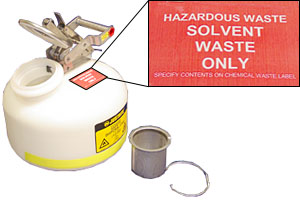
Spring Flowers
http://pendulo.org/wallpapers-for-facebook/spring-flowers-wallpaper/
Carson recognizes that realigning our priorities will take some time, "time in not years, but in millenia", and that waiting is the only action we can take for the current time (Carson, 154). The main reason it will take time is because there are not enough people aware of the threat we are putting on ourselves with the exposure to dangerous chemicals (Carson, 160). I agree when Carson claims that we are a generation and community dominated by industry (Carson, 160). So while it comes across negatively that we have been able to build ourselves-literally- from the ground up and that our success is nothing to brag about, I believe that without this ascension in society, people would have that to complain about instead. Either way, someone is not going to be happy with how things are set.

All in time
http://www.abramweather.co.uk/web_images/earth-hour-graphic-copy-450x338.jpg
While I do agree with some of what Carson details, I find myself to mostly challenge her words. It almost seems contradictory to believe in some things and object to others that are along the same page. It was nicely put when Carson states, "This pollution is for the most part irrecoverable: the chain of evil it initiates not only in the world that must support life but in living tissues is for the most part irreversible" (Carson 153). Now it may sound like it's going in circles but with the harm that we are creating to, specifically, living tissue, we all know there is constant research on way to better ones' health. Yet, the way to do that is generally with more radiation and more chemicals on top of what already caused it, but I do feel that chemists are aware of the harm they are causing and will create ways to dispose or decompose the harmful ones that are already in place. From personal experience, while working in the Organic Chemistry Lab, there are specific instructions on how to dispose of wastes; harmful wastes go into separate containers from those that are less of a threat. Now what they do with it from there I have no idea, but I can confidently say there is no way it is being disposed of in a careless matter, for instance down "an endless stream", as Carson and some nature conservatives may believe (Carson, 155).

http://www.udel.edu/ehs/waste/waste-container.html
At first, I was confused as to what illness Carson kept speaking of. "In the town the doctors had become more and more puzzled by the new kinds of sickness appearing among their patients" (Carson, 151). Then as I read into The Obligation to Endure it began to fall together; Carson feels that all of the chemicals we are putting into the atmosphere is harming all of the environment, and the most drastic and dramatic effect will be when it starts becoming an epidemic and killing off humans.
One last bit of opinion. I also find it very circling how we walk through nature trails and can identify species that have been injected with herbicides to prohibit them from taking of other species, yet the same people say that there are too many chemicals harming the earth. Evidently, there is a fine line that is being tip-toed around.

Hmmmm
http://1389blog.com/2014/09/14/why-build-a-chemistry-laboratory-entirely-of-combustible-wood/
No comments:
Post a Comment